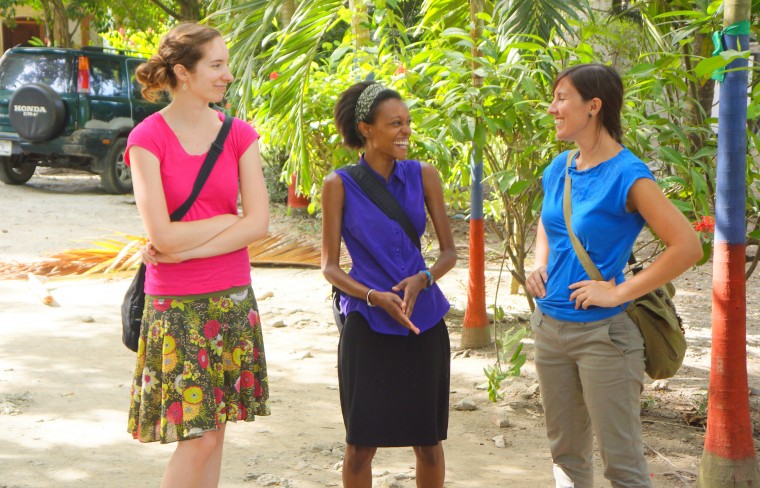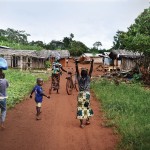William Powderly, MD, finds encouragement in what he calls “the keen student interest in having global experiences, in addressing global health challenges and in thinking of themselves as global citizens.”
Lora Iannotti, PhD, is one of the Washington University faculty members helping train this next generation of global health professionals. As chair of the global health specialization for the Brown School’s Master of Public Health program, Iannotti develops curricula. She also teaches “Global Health”; “Global Hunger and Undernutrition”; and “Transdisciplinary Problem-Solving in Haiti: Public Health Interventions in Developing Countries,” which was offered for the first time in summer 2014.
Further, Iannotti works with Carolyn Lesorogol, PhD, associate professor and associate dean of global strategy and programs at the Brown School, to help place students in international practicum sites. Under Lesorogol’s leadership, the Brown School is working to build an inventory of deep-rooted, permanent international sites from which students may choose.
At the School of Medicine, other opportunities exist for global learning:
- The Forum for International Health and Tropical Medicine (FIHTM) student group provides funding for 25 medical students interested in spring break opportunities, summer research, clinical experiences and fellowships, “to prepare students as creative and critical thinkers about the intricacies of global health.” One rotation offered is assisting pediatrician Mark Manary, MD ’82, in feeding the severely malnourished in Malawi. (See sidebar, “Researchers tackle malnutrition on many fronts,” for more on Manary.) FIHTM, whose faculty adviser is Gary Weil, MD, also hosts an annual global health symposium together with global health faculty. In April 2015, for example, FIHTM hosted a symposium in conjunction with the Global Health & Infectious Diseases Conference.
- The Global Health Scholars Pathway in Internal Medicine is committed to training future clinical and research leaders in global health. The pathway increases residents’ awareness of global health systems, enhances understanding of the impact of culture and poverty on population health, and fosters skills for providing care in resource-poor environments.
- The Global Health Center began a new program in 2014 — Summer Research Program in Global Health — to offer students an eight-week opportunity to work with faculty members who focus on global health.
In the School of Engineering & Applied Science’s Department of Energy, Environmental & Chemical Engineering, student researchers look at the role of the environment in global health problems, including the spread of infectious diseases. Sustainable water, in both quantity and quality, is crucial to protecting human health. Sustainable air quality and technologies that provide for clean air are also paramount in a rapidly developing world. Adverse health effects in both urban and rural areas from poor water and air quality illustrate the need for the development of effective technologies.

